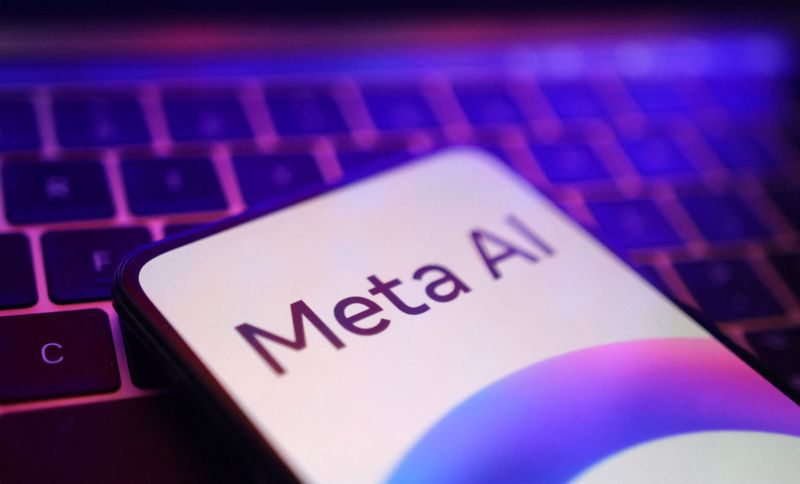By Katie Paul
NEW YORK – Facebook (NASDAQ:META) owner Meta said on Friday it was releasing a batch of new AI models from its research division, including a “Self-Taught Evaluator” that may offer a path toward less human involvement in the AI development process.
The release follows Meta’s introduction of the tool in an August paper, which detailed how it relies upon the same “chain of thought” technique used by OpenAI’s recently released o1 models to get it to make reliable judgments about models’ responses.
That technique involves breaking down complex problems into smaller logical steps and appears to improve the accuracy of responses on challenging problems in subjects like science, coding and math.
Meta’s researchers used entirely AI-generated data to train the evaluator model, eliminating human input at that stage as well.
The ability to use AI to evaluate AI reliably offers a glimpse at a possible pathway toward building autonomous AI agents that can learn from their own mistakes, two of the Meta researchers behind the project told Reuters.
Many in the AI field envision such agents as digital assistants intelligent enough to carry out a vast array of tasks without human intervention.
Self-improving models could cut out the need for an often expensive and inefficient process used today called Reinforcement Learning from Human Feedback, which requires input from human annotators who must have specialized expertise to label data accurately and verify that answers to complex math and writing queries are correct.
“We hope, as AI becomes more and more super-human, that it will get better and better at checking its work, so that it will actually be better than the average human,” said Jason Weston, one of the researchers.
“The idea of being self-taught and able to self-evaluate is basically crucial to the idea of getting to this sort of super-human level of AI,” he said.
Other companies including Google (NASDAQ:GOOGL) and Anthropic have also published research on the concept of RLAIF, or Reinforcement Learning from AI Feedback. Unlike Meta, however, those companies tend not to release their models for public use.
Other AI tools released by Meta on Friday included an update to the company’s image-identification Segment Anything model, a tool that speeds up LLM response generation times and datasets that can be used to aid the discovery of new inorganic materials.

